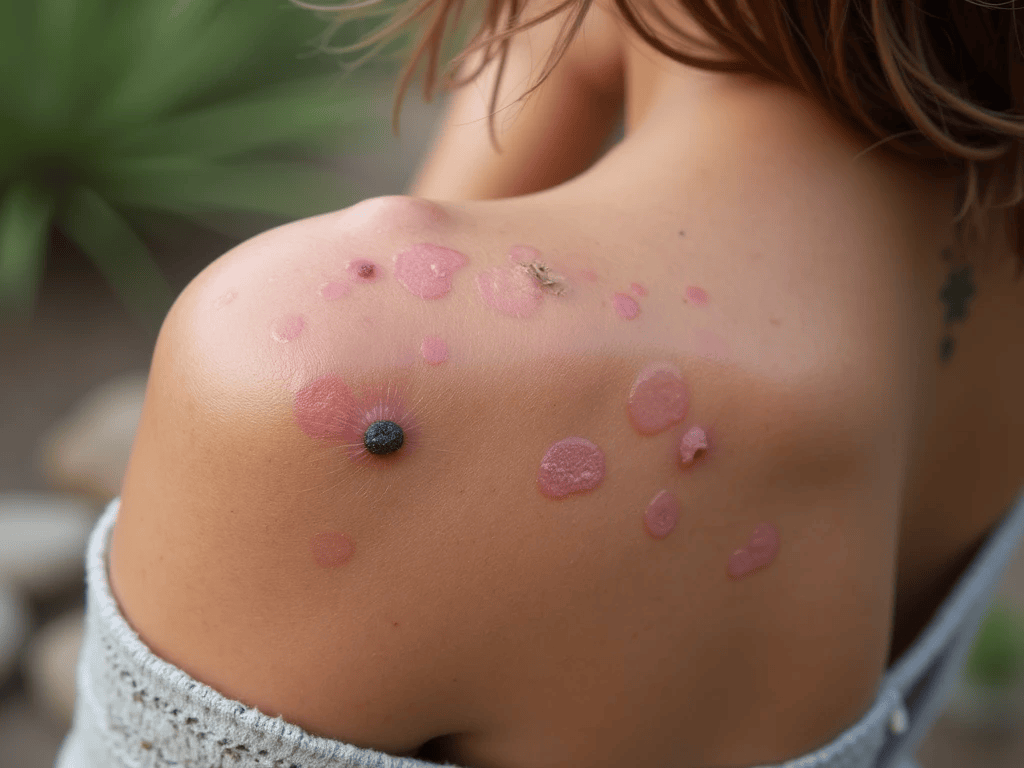Nowadays, skin cancer is the most common type of cancer among people around the globe. It is said that skin cancer is mainly induced by the undue and excess of sunlight exposure. If it is detected at the early stage, it can be cured and healed with different types of treatment. Fortuitously, with progress in dermatology and a concentration on preventative care, people living in Metro Phoenix can approach a diversity of tools and services to find early skin cancer detection at its most former, most treatable stages.
What is the Importance of Early Skin Cancer Detection?
Skin cancer generally grows in areas exposed to sunlight, merely it can also appear in less open areas of the human body. The most common sorts of skin cancer include basal cell carcinoma (BCC), squamous cell carcinoma (SCC), and melanoma, the most fatal kind of skin cancer. The good news is that skin cancer, particularly melanoma, has a high survival rate when found ahead of time. Early skin cancer screening can save your life. Mobile skin screening is doing a lot in this field and can help you to aid and assist in early skin cancer screening.
Melanoma is ill-famed for spreading quickly, but it has a 99 pct survival rate when captured in its early phases. This is how early detection and frequent skin checks are dominant. Regular self-contemplations, professional screenings, and taking active steps to protect your skin can make a substantial difference in finding skin cancer before it disperses.
Skin Cancer Risk Factors in Metro Phoenix:
Living in Metro Phoenix signifies enhanced exposure to UV rays due to the area’s desert mood. The Valley of the Sun is recognized for its year-round sunlight, which can lead to higher chances of skin damage and skin cancer. A few fundamental risk factors are:
- The extreme desert sunlight in Metro Phoenix signifies residents frequently spend extended periods outdoors, whether at the pool, hiking up, or commuting.
- People with fair skin, blonde or red hair, and light eyes are more susceptible to suntans and skin damage.
- Bearing a history of blistering burns, particularly in childhood, increases the danger of getting skin cancer and by in life.
- A family history of skin cancer, especially melanoma, conjures your fortunes of getting the disease.
- Though less common now, past utilization of tanning beds remains a danger factor, as UV vulnerability from fake sources can step up the odds of skin cancer.
But if you live in Metro Phoenix, you can have the best Phoenix skin cancer specialist at your disposal.
How to Detect Skin Cancer Early?
The sooner you spot fishy changes in your skin, the better the hazards of catching skin cancer before it advances. Self-examinations, expert screenings, and awareness of dissuasive signals are key factors in early detection.
1. Do Frequent Self-Exams:
Self-exams are a comfortable and promising way to supervise your skin for any variations. The American Academy of Dermatology (AAD) suggests doing a full-body skin verification once a month. Utilize a tall mirror and a hand-held mirror to analyze all areas of your body, like your scalp, ears, back, and still the resoles of your feet.
Search for fresh moles or outgrowths or whatever changes are present in the moles. Pay attention to the following features, recognized as the ABCDEs of melanoma:
- A – Asymmetry: half of a mole does not match the other one-half.
- B – Border: The mole’s borders are uneven, rough, or poorly defined.
- C – Color: The color is mismatched, with shades of dark brown, black, blood-red, or white.
- D – Diameter: The mole is more significant than 6 mms (approximately rubber-sized).
- E – Evolving: The mole alterations in size, shape, or color with time.
2. Make an Appointment with an Expert:
Although self-exams are all important, they are not a replacement for expert skin checks. A skilled dermatologist can evaluate your skin more soundly and key out areas of concern you might miss. If you reside in Metro Phoenix, there are a lot of dermatology clinics and mobile services offering skin cancer screenings.
Several dermatologists suggest yearly skin exams, particularly for those at higher risk. These examinations include a full-body exam by a dermatologist who can assess all of your skin for marks of basal cell carcinoma, squamous cell carcinoma, or melanoma. Ahead of time signs of melanoma can frequently be elusive, and then having a professional evaluate your skin is essential for early diagnosis.
3. Mobile Skin Cancer Screening Services:
Mobile skin cancer screenings have become a progressively popular choice in Metro Phoenix for those who might have trouble getting a standard dermatology clinic. Mobile dermatology services add skilled care immediately to your doorstep, providing convenience and peace. These services commonly include a qualified skin doctor who will take a complete skin exam, check for fishy moles, and suggest future steps.
Mobile skin cancer screenings can be a bang-up pick for persons with busy routines, mobility issues, or those who opt for the ease of being at home. A lot of these services also propose telehealth consultations to go through care or to talk about results.
4. Progressions in Technology for Skin Cancer Detection:
Fresh technologies are also bettering skin cancer spotting, like the utilization of digital imaging and AI-assisted analysis. A few skin doctors in the Metro Phoenix region use advanced tools specified as dermatoscopes, which provide more exact exams of moles and outgrowths. In addition, artificial intelligence (AI) is being incorporated into dermatology practices, ensuring faster and more exact analysis of skin images.
For example, AI-powered apps can assist persons in tracking variations in moles with time and allow a prelude assessment of whether a mole looks fishy. Although these tools are useful, they must always be utilized with expert care.
Early Skin Cancer Screening in Metro Phoenix, AZ:
If you are a resident of Metro Phoenix, AZ, then you can have the best mobile skin screening services. With the help of mobile skin screening, you can get Early Skin Cancer Screening in Metro Phoenix, AZ so that you can better deal with and handle skin cancer. Consultation is just a one-call away. Please book your appointment now and get the best consultation with our expert doctors.
FAQs:
Q: Why is early skin cancer detection important?
A: Early skin cancer detection is essential as it significantly improves the chances of successful treatment and endurance, particularly for melanoma. When captured ahead of time, skin cancers are more expected to be set and can frequently be moved out with minimum interference, bringing down the need for hard-hitting treatments.
Q: How does mobile skin cancer detection work?
A: Mobile skin cancer detection needs a trained skin doctor visiting your position or conducting realistic consultations to analyze your skin for signs of cancer. Utilizing special instruments or telehealth technology, they evaluate moles and outgrowths, allow a diagnosis, and suggest further steps, specified as personal biopsy or treatment, if required.
Q: What are the warning signs of skin cancer?
A: Warning signs of skin cancer include fresh or changing moles, outgrowths, or wounds, particularly those that are irregular, have abnormal edges, aggregate colors, or outgo 6mm in diameter. In addition, a dermatologist had better assess whatever mole develops in size, shape, or color or sheds blood, itches, or turns painful.





